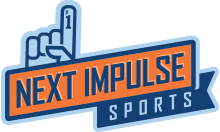
For the first time in nearly in nearly 35 years, doctors and psychiatrists in Switzerland are in the final stages of completing an LSD-assisted psychotherapy treatment and evaluation. LSD was a federally banned in the United States in 1968 which put an end to psychiatrists actively studying the potential uses of LSD in psychological therapy.
But thanks to a 1997 approval by Swiss legal authorities to move forward with the study, psychiatrists and doctors have another shot at unlocking new findings about the medical effects of the drug. Last month on May 26th, 2011, the initial LSD-assisted psychotherapy session was completed. Psychiatrist and lead investigator of the study, Peter Gasser, M.D., wrote a letter to his friends and associates saying “…all the 12 participants reported a benefit from the treatment.”
Dr. Gasser goes on to say, “I am proud to say that we had in 30 sessions (22 with full dose 200 μg LSD and 8 with placebo dose 20 μg LSD) no severe side effects such as psychotic experiences or suicidal crisis or flashbacks or severe anxieties (bad trips). That means that we can show that LSD treatment can be safe when it is done in a carefully controlled clinical setting.”
Those who participated in the LSD-assisted psychotherapy study said they were “more aware of what was important and meaningful in life to being more relaxed toward everything that happened to them.” Of the 12 people in the study, only two had previously taken LSD.
Dr. Gasser will have the scientific paper ready for publishing at the end of Spring but worries it won’t statistically significant because it will be difficult to claim the results were not a direct cause of the LSD therapy. He says that even if the results aren’t statistically significant, the study will show that LSD can be safely used in a clinical setting.
He should have used a much larger population size. If he had, and the findings were the same, he would have a much better chance of drawing attention to his study. He must have been trippin’…in a “safe” and “controlled clinical setting,” of course.
[via: The Raw Story]






